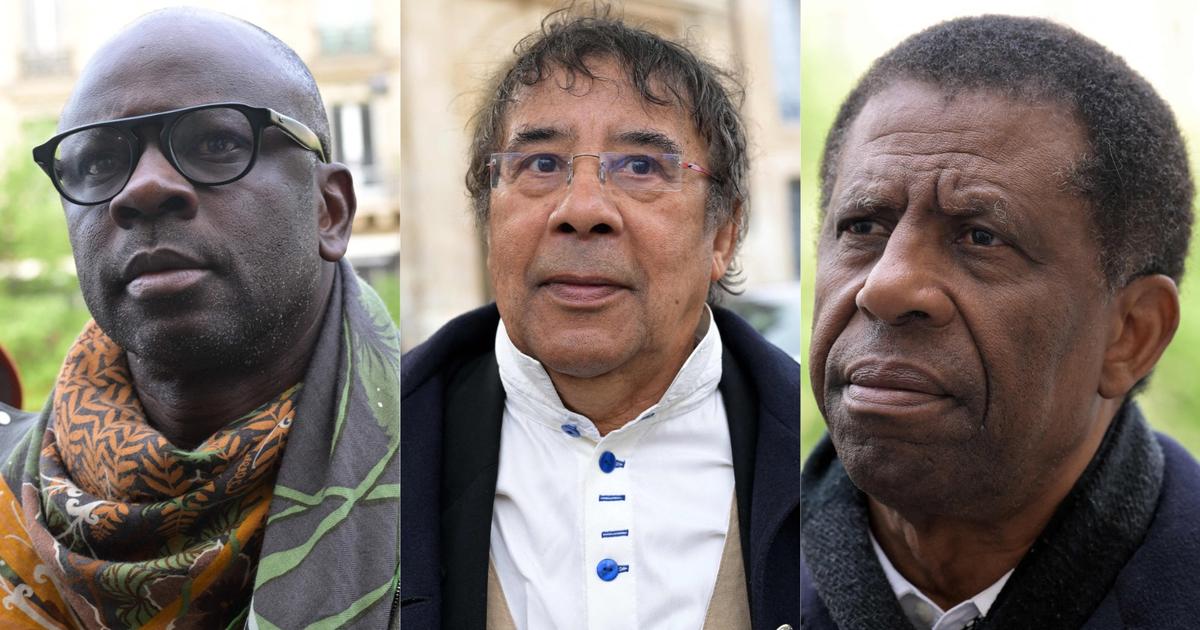It's a gesture that comes late and bumpy.
The Netherlands, whose wealth as a trading nation began with the exploitation of colonies in the so-called "Golden Age" of the 17th century, wants to apologize for slavery.
Even before Prime Minister Mark Rutte's speech this Monday and an apology from government representatives in the former colony of Suriname and overseas territories, however, there were heated debates.
Some do not like the date and form, some descendants feel badly integrated.
Others want King Willem-Alexander to apologize and Holland to pay compensation.
The start was already tough.
In 2001 and 2013, the government expressed its regret, but descendants of slaves and residents of former colonies tried in vain for an apology from the former third-largest colonial power in the world.
A commission set up by the government then declared in July that the Netherlands had to apologize and actively work to combat the consequences, such as racism.
For weeks it was printed around
Next year the country will commemorate the end of slavery.
Rutte's apology plan was unintentionally made public at the start.
For weeks it was printed around what it could be about - and some were already dissatisfied in advance.
Surinamese associations wanted to urgently ensure that the apology was not made on an arbitrary date but on July 1 of next year, 160 years after the official abolition of slavery by the Netherlands.
A court dismissed the lawsuit on Thursday.
"The core issue is that the effects of the slavery past must be taken into account in the present," said Mercedes Zandwijken of the Keti Koti Table foundation involved in the lawsuit, broadcaster NOS.
“We want to be able to set the date ourselves.
If you argue at home and apologize, but the tone isn't right, it doesn't go over well."
"More important than the date is that the apology is accompanied by a reclamation program," the chair of the Dutch National Slavery History Foundation, Linda Nooitmeer, told NOS.
"The effects of slavery are still lingering and something needs to be done about them."
High-risk unilateral action
Government officials are expected to make apology gestures on Monday in the Netherlands Antilles, the six Caribbean islands of Aruba, Bonaire, Curaçao, Saba, St. Maarten and St. Eustatius, which were a Dutch colony until 1954 and since then an autonomous area within the kingdom with around 300,000 inhabitants are.
King Willem-Alexander is still the head of state there.
A Dutch minister is also expected in the former colony of Suriname.
The small state on the northeast coast of South America became independent in 1975 and has around 600,000 inhabitants.
The fact that a minister who is himself a descendant of slaves is supposed to speak to Franc Weerwind caused a stir.
A Surinamese representative demanded that "a white person" apologize.
Rutte still lets Weerwind talk, but sent Deputy Prime Minister Sigrid Kaag to Suriname to smooth things over.
“This is a unilateral Dutch measure with a high risk of failure.
There is a risk that the descendants of the indigenous people and the enslaved will again not accept the apology," Armand Zunder, head of the National Compensation Commission of Suriname (NRCS), told the newspaper de Ware Tijd.
"We absolutely cannot condone that.
This is premature.
I don't know why the Dutch are suddenly in such a hurry."
Rich through slavery
It has long been known that the historical postcard idyll of the Netherlands with stately mansions on Amsterdam's canals and the paintings of richly laden merchant ships has cracks.
In addition to goods from the colonies, the boats also transported people;
from 1640 to 1670 the Netherlands was the world's largest slave trader.
The country enslaved an estimated 500,000 people over 200 years.
They were mostly kidnapped from West Africa, sold and had to work on the plantations in Suriname and the Antilles.
As one of the last countries in Europe, the kingdom officially abolished slavery on July 1, 1863.
The Netherlands had already apologized to Indonesia, their former East Indies colony, in February.
This was not about slavery, but about acts of violence committed by their troops in Indonesia's War of Independence (1945-1949).
And on Wednesday, The Hague made it clear that today these acts would count as war crimes.
Prime Minister Rutte doesn't think it's a bad thing that his appearance on Monday will fuel further discussions, on the contrary.
Last week's debate had already led to "a wealth of reactions" and the intensity of the talks on slavery had increased, he said on Friday.
The Netherlands could not demand acceptance of the apology, that would be arrogant, admitted State Secretary Marnix van Rij, who spoke on Monday on the tiny Caribbean island of Sint Eustatius.
It's going to be a long process.
"We are doing something as the Netherlands that we possibly should have done much sooner."





/cloudfront-eu-central-1.images.arcpublishing.com/prisa/4YJMGVUCWNCTTD5PKRVXN5PUAI.jpg)









